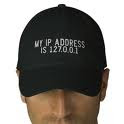Debt cure has always been an issue. Today however, the amount of debt Americans are racking up is astronomical in a way that far surpasses any other time in history. Our national debt is in the trillions, and it looks to be seriously doubtful that we will ever get out of doubt as a nation. What is worse however, is the critical amount of debt that individual Americans are in. We are talking billions of dollars. Debt that is crushing thousands upon thousands of our families, leaving them in bankruptcy, and to the poor house!
One thing you should watch out for, are the companies, and so called experts who are promising so called secret debt remedies, in exchange for a high price tag that is only going to put their customers in more debt. With that being said, here are some proven steps you need to take in order to get yourself out of debt, and on your way to financial freedom.
First, quit taking on new debt. You need to make a decision right now to quit taking on any extra monthly expendetures. One of the main reasons so many Americans are in deep debt is because of our extravagant life styles. There is nothing wrong with having nice stuff, if you can afford it. But if you honestly cannot afford to live like a celebrity, do not charge it so you can! The first thing you have to do in order to start climbing out of the pit, is make a commitment to live a simpler life. Start by figuring up how much money absolutely has to go out each month. This would include things like food, rent, utilities, gas, insurance, and the like. Take a simple inventory of what you must have, and write it all down.
Next, add up the amount of income you are currently able to bring in every month. Most anyone will be able to cover their basic bills with a regular 40 hour per week job. If you make enough to pay your necessary bills, then great. If not, its time to simplify even more. Get a room mate who will split the cost of living with you, in order for you to have a bit of extra income each month.
After you have simplified your life, and calculated the amount of extra money you have left over each month its time for step two, which would be finding your smallest debt to pay off. No matter how small it may be, knock it off the list. If you have only a hundred dollars on a credit card, then your first goal is to pay it off completely, while making minimum payments on your other bills. The only way to eat an elephant is one bite at a time, so start here. After it has been paid off, cut it up, and look for your next smallest amount of debt to attack, and determine the maximum amount you are able to pay on it each month until it is also gone. Repeat this process over and over.
The next thing you should do, is invest. I know you are probably thinking it is crazy for you to invest when you have more bills to pay, but remember you life is simple now, and you do not currently waste money on things like cable, internet, subscriptions to magazines, and other junk you were before. What kind of investment am I talking about? An investment in you. You need to learn a new skill that will allow you to increase your earning power. If you only have one hundred dollars to invest, then go buy a power washer or another tool that will enable you to earn extra money on the side. You can charge seventy five dollars to use your power washer a few times each week, and make good extra money that will go toward paying off more debt.
If you can, invest in some education that will allow you work with your brain instead of your back. This is imperitive to accomplishing your goal because if there is one principle you must know, it is that there simply are not enough hours in a day to become rich. There are only two ways to make money. You can trade a service for dollars, or you can trade hours for dollars. I am willing to bet you can only trade sixty hours or so each week, and unless you are making over twenty dollars an hour, you will never get ahead.
Learn a trade, or something you can exchange other than your hours for dollars. Reaching this goal will be the best debt cure you implement because truly time is money. Make it your goal to simplify your life, and create more time for yourself to gain more earning power.
So to recap, the first thing you need to do is commit to take on no more debt. The next thing you need to do, is figure up how much you absolutely must spend to stay afloat each month, and how much you are bringing in. Next you are going to determine what you smallest amount of debt is, and attack it full on, while making minimum payments on your other debt. Pay them off one by one, it may take time, but you will be freeing yourself from it, and building credit at the same time. Lastly, you are going to invest in yourself each month. You will do this by investing into a tool, or knowledge for the ultimate goal of transfering your life from an hours for dollars type of arrangement, to a service for dollars type of arrangement. The more knowledge, and the more tools you gain, the faster this will happen. Once it does happen, you will have more time to leverage your earning muscles, and pay off even more debt.
It is not flashy, but it will work. Hard work, and wise planning are always a safe bet. If you apply these simple steps, and have someone keep you accountable to doing them, you will be out from the oppression of the collectors, and on your way to financial freedom.
Read more...








